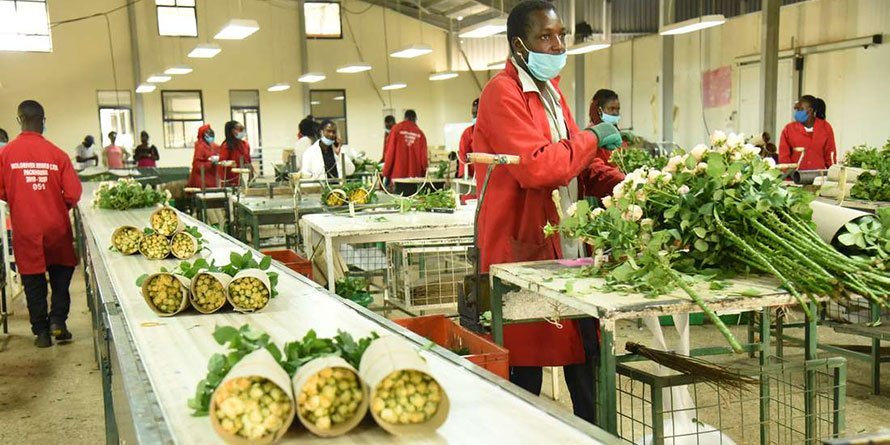Workers at Molo River roses flower farm in Nakuru. FILE PHOTO | NMG Diminishing demand for fresh produce in the European market has seen freighters cut down on their weekly flight frequencies to the continent.
High seasons in the European market are always between September and May after which the demand for fresh produce goes down as summer kicks in.
Europe is a major buyer of Kenya’s horticulture crops, with over 60 percent of the produce finding its way to the continent.
During summer, most of the countries produce their own crops with many people going for holidays, cutting down demand.
“We have witnessed a declining demand because of the low season in Europe, which is normally a tradition around this time of the year,” said Sanjeev Gadhia, the chief executive officer of Astral Aviation.
Freighters are now doing more flights on intra-Africa routes. However, Kenya Airways is still servicing Asian market, mainly to China with three cargo flights slated for this week.
Astral Aviation, which has been operating five flights a week to Europe, has now cut the number to four with a likelihood of reducing further depending on demand.
The carrier is at the moment doing 20 intra-Africa flights a week, which is an increase from 14 it operated at the same time last year.
Mr Gadhia said the traffic within Africa is good and the rates favourable basing on what they are charging at the moment.
Fresh Produce Association of Kenya chief executive officer Ojepat Okisegere said a rise in demand in Europe might come earlier than expected because of the Covid-19, which saw a lot of crops destroyed on the farms.
“Because of Covid-19, there were a lot of crops that were damaged on farms and this might see the demand pick up as early as next month as opposed to September,” said Mr Okisegere.A kilo of cargo is going for Sh265 from Nairobi to Johannesburg with the same quantity to Europe at Sh212.Cargo volumes at the Jomo Kenyatta International Airport (JKIA) have dropped to about 2,500 tonnes a week from about 5,000 tonnes, with freight charges following suit to settle at an average of Sh212 a kilo from Sh530 in March.High cost of cargo in March was occasioned by high demand of freight services amid declining numbers of cargo operators at the JKIA as most of the carriers pulled out of Nairobi following flight disruption caused by Covid-19.Commercial passenger flights have so far resumed […]
